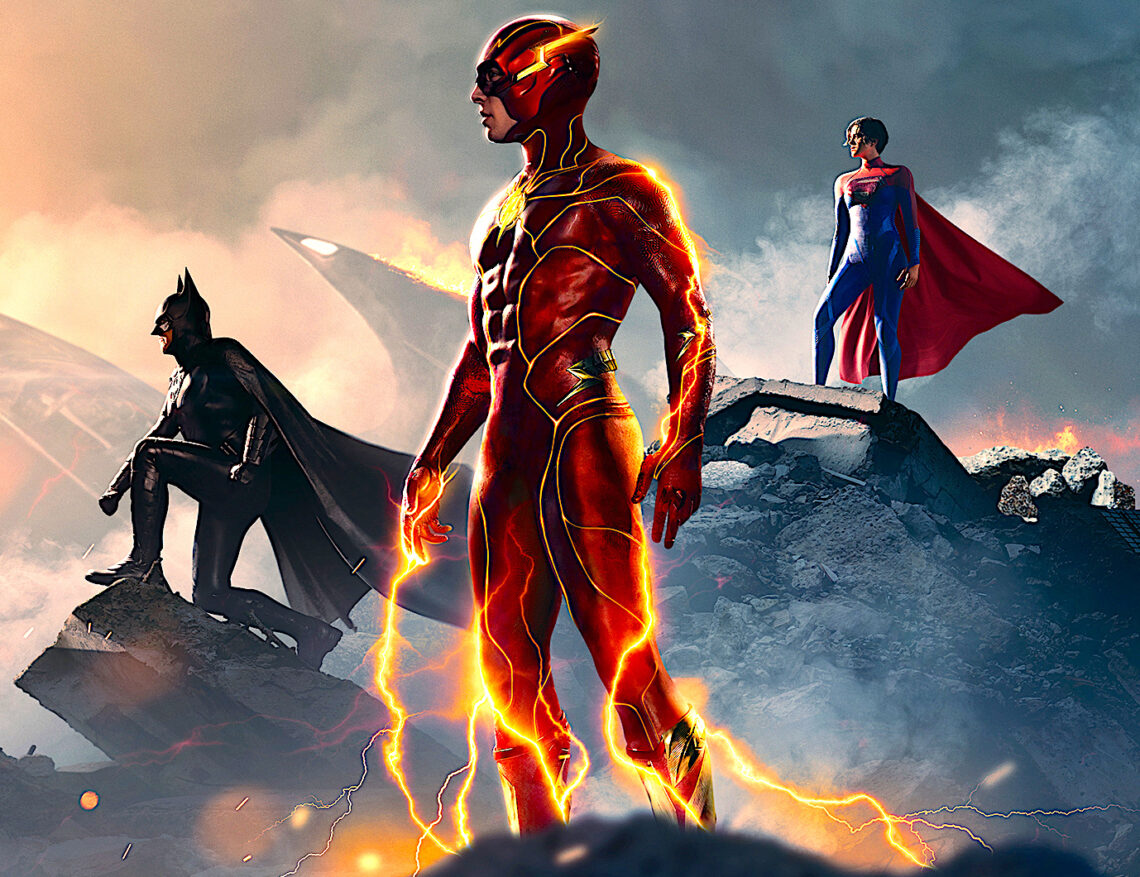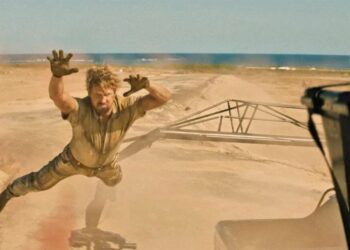After years in development, multiple reshoots, and dealing with a problematic star, The Flash achieves final form as the concluding chapter of a soon-to-be bygone era. Before James Gunn can take the Batmobile out for a spin, the DC Universe must first bid farewell to Zack Snyder’s vision for the Justice League and DC. This film is the Snyderverse’s swan song.
A note to fans of the original Flashpoint comic book story: there might be some disappointment as the movie only picks up the essence of the paradigmatic story arc, not much of the actual story. Fans looking for Martha Wayne’s Joker or a continent-destroying battle between Aquaman and Wonder Woman, will soon discover that those plot points remain on paper only.
Directed by Andy Muschietti (It: Chapter One and Two) and starring Ezra Miller as Barry Allen, the youngest and most grating member of the Justice League, The Flash pulls the band back together for one final hurrah, along with a few old-school favorites thanks to Barry’s discovery of the Speed Force, which can be used to alter time and space.
Lacking a proper solo outing til now, The Flash offers a deeper look into Barry’s tragic backstory, usually hidden by his goofy persona. As a child, his father Henry (Ron Livingston) was falsely convicted of murdering his mother (Maribel Verdú). Years later, on the eve of his father’s court appeal, Barry goes for a frustration run and discovers that he can outrun time itself, allowing him to change history. So what would it hurt to save his mom? That’s just one person, right? Then the real fun begins.
The most amusing parts of The Flash come from the Butterfly Effect (the idea that a small change in the past can significantly alter the present). Barry’s time travel and the ramifications of his folly through the DC Universe are a big part of the movie. Because of his impulsive decisions, we get Michael Keaton’s Batman, a brand new Supergirl (Sasha Calle), the return of General Zod (Michael…
Read the full article here







